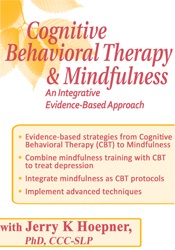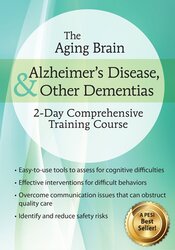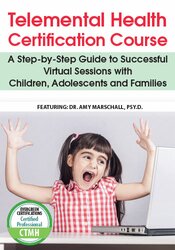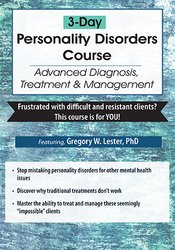Achieve more with the Cognitive Rehabilitation -Therapeutic Strategies for Effective Intervention – Jerry Hoepner course, priced at just Original price was: $219.99.$61.00Current price is: $61.00. on GBESY.biz! Explore our extensive collection of over 60,000 downloadable courses in Health and Medical. We offer professional, self-paced digital education at up to 80% off original rates. Start transforming your expertise now!
Cognitive Rehabilitation -Therapeutic Strategies for Effective Intervention by Jerry Hoepner,
Salepage link: At HERE. Archive:
- Faculty:
- Jerry Hoepner
- Duration:
- Full Day
- Format:
- Audio and Video
- Copyright:
- Feb 19, 2016
Description
- Cognitive-Linguistic Assessment Tools
- Documentation for Reimbursement
- Attention
- Memory
- Executive Function Skills
- Visual Perceptual Function
- Delirium, Depression and Right Hemisphere Dysfunction
Drawing on over 15 years of clinical experience and more than 10 years of teaching, Dr. Hoepner will teach you skills to appropriately create a plan of care and realistically facilitate improved function in your patients. Attend this information-packed seminar and systematically understand the anatomy of each component of the cognitive-communication system and move quickly into specific management techniques for intervention. Walk away with practical and useful techniques which can be implemented immediately within your practice. Through examples from experience and case studies, Dr. Hoepner will go beyond lecturing and facilitate learning through a collaborative exchange of ideas relating to therapy techniques.
Handouts
| Webcast Manual (35.95 MB) | 115 Pages | Available after Purchase |
Outline
Cognitive-Linguistic Assessments
-
Screening tools
-
Cognitive evaluations (standardized and non-standardized)
-
Language assessments (standardized and non-standardized as they apply to cognitive assessments)
-
Rating scales (provider and consumer)
Cognitive Rehabilitation Techniques
-
Remediation / Compensation / Adaptation
-
Therapy decision-making (dynamic/ongoing assessment; patient centered; goal directed)
Documentation of Skilled Services
-
Justification for skilled, necessary and reasonable therapy
-
ICD-9 / ICD-10 codes pertinent to SLP intervention
-
SMART goals
-
Outcome measures
-
FIMS
-
NOMS
-
Relevancy to G-Codes
-
A guide for developing LTG’s
-
-
-
Key elements required for:
-
Daily notes
-
Progress notes
-
Attention
-
Posner’s Theory of Attention
-
Anatomic substrates of the attention system
-
Attention subtypes
-
Functional manifestations of inattention
-
Interventions strategies for promoting improved attention across recovery continuum
-
Remediation
-
Wakefulness (stimulation management programs)
-
Reduced agitation (validation therapy, environmental modification, positive psychology)
-
Increased function (direct attention training with reflection)
-
-
Compensatory strategies (partner-based supports, environmental interventions)
-
Adaptation techniques (assisted prompting)
-
-
Goal writing for attention deficits
Memory
-
Anatomy of the memory systems
-
Memory types
-
Encoding / Consolidation / Retrieval
-
Interventions for facilitating recall
-
Remediation
-
Utilization of preserved systems (spaced retrieval, routines, implicit learning)
-
Adaptation techniques
-
-
External aids
-
Task-specific learning
-
Goal writing for attention deficits
-
Executive Functions (EF)
-
Anatomic substrates of the EF system
-
McCloskey’s Executive Functions
-
Executive functioning hierarchy
-
Self-activation
-
Self-regulation
-
Self-realization
-
Self-determination
-
-
Functional manifestations of EF impairments
-
Specific focus areas for EF’s
-
Functional problem solving
-
Awareness / Insight
-
-
Strategies for reducing the effects of executive dysfunction
-
Remediation (Reflection, video self-modeling, Ylvisaker’s Goal-Plan-Do-Review)
-
Compensation (routines, environmental interventions, partner-based interventions)
-
Adaptation (cognitive prosthetics)
-
-
Goal writing for EF and problem solving
Visual Perceptual Function
-
Anatomy of the visual system
-
Warren’s Visual Perceptual Hierarchy
-
Functional manifestation of visual perception deficits
-
Therapeutic strategies specific to:
-
Low vision
-
Hemispatial neglect
-
Remediation (known quantities, metacognitive/self-regulatory interventions)
-
Compensation (environmental interventions, partner-based interventions, edgeness and bookness)
-
Adaptation (visual/attentional prosthetics)
-
-
Goal writing for visual perceptual impairments
Special Considerations
-
Delirium
-
DSM-5® criteria for delirium
-
The neuroscience of delirium
-
Diagnosing delirium
-
Protective, predisposing and precipitating factors for delirium
-
Reversible causes for delirium
-
Treatment techniques for delirium
-
-
Depression
-
Clinical manifestations of geriatric depression
-
Medications which can cause depression
-
SLP role in the management of depression
-
-
Right Hemisphere Dysfunction (RHD)
-
Assessment tools specific to RHD
-
Clinical manifestations of RHD
-
Left hemispatial neglect
-
Pragmatic impairment
-
Reduced awareness / insight
-
Cognitive impairment
-
-
Specific Therapy Activities
Case Studies
Faculty

Jerry Hoepner, PhD, CCC-SLP Related seminars and products: 5
Jerry Hoepner, PhD, CCC-SLP, is an assistant professor in the Communication Sciences and Disorders Department at the University of Wisconsin – Eau Claire. In that capacity, he teaches coursework in neuroanatomy, dysphagia, aphasia, acquired cognitive disorders, and counseling. Dr. Hoepner received his MS from the University of Wisconsin – Eau Claire and his PhD from the University of Wisconsin – Madison in Communication Sciences and Disorders. His current research examines the role of partners in supporting the success of everyday interactions of individuals with traumatic brain injury, aphasia and dementias. A second line of research examines teaching pedagogies and learner responses. Clinically, Dr. Hoepner specializes in the use of routines to reduce demands on working memory and executive functions. He co-facilitates Aphasia Camp and the Chippewa Valley Aphasia Group.
Speaker Disclosures:
Financial: Dr. Jerry Hoepner is an assistant professor and researcher at the University of Wisconsin Eau Claire. He receives a speaking honorarium from PESI, Inc.
Nonfinancial: Dr. Jerry Hoepner is on the board of directors for the Chippewa Valley Aphasia Group.
Invest in endless knowledge with the Cognitive Rehabilitation -Therapeutic Strategies for Effective Intervention – Jerry Hoepner course at GBESY.biz! Gain lifetime access to premium digital content designed to fuel your professional and personal growth.
- Lifetime Access: Unrestricted, permanent access to your purchased courses.
- Unbeatable Value: Save significantly with prices up to 80% less than direct purchases.
- Protected Payments: Complete your transactions securely.
- Empowering Skills: Learn practical, in-demand skills for immediate application.
- Immediate Download: Access your course content instantly after purchase.
- Any Device, Anywhere: Study on your preferred device with full flexibility.
Discover your next opportunity with GBESY.biz!
![GBesy [GB] GBesy [GB]](https://gbesy.biz/wp-content/uploads/2023/05/gbesy-Logo-full-100.png)
![GBesy [GB] GBesy [GB]](https://www.gbesy.com/wp-content/uploads/2023/05/gbesy-Logo-full-100.png)



 Purchase this course you will earn
Purchase this course you will earn 






Reviews
There are no reviews yet.